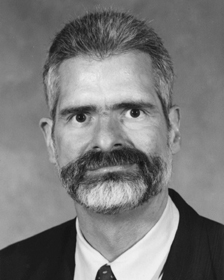Psychology Professor Recognized For Quality Of Life Contributions

Michael B. Frisch
by Judy Long
Baylor University professor of psychology and neuroscience Michael B. Frisch was named Distinguished Research Fellow by the prestigious International Society for Quality of Life Studies at its annual meeting this month in Washington, D.C. Frisch was nominated for the honor by Dr. Edward Diener of the University of Illinois, who is considered the leading authority in quality of life studies.
"Dr. Michael Frisch has made a lifetime and substantial contribution to quality of life research. He, more than any other researcher in the past 30 years, has introduced quality of life concerns to the field of mental health, in general, and clinical psychology and psychiatry, in particular," said Diener. "Dr. Frisch has made quality of life assessment and treatment a standard part of psychiatric practice and research."
In his research and writing, Frisch has developed a model of quality of life, as well as the most current and accurate assessment for quality of life in psychiatry and mental health. Frisch's quality of life inventory is one of the best validated and most widely used measures in the field, Diener said. Frisch also developed one of the few treatment programs for boosting quality of life in a medical or health care context.
Frisch's inventory also has been found useful in predicting future episodes of depression, heart disease and poor work performance, even years in advance.
The widely-used inventory names 17 crucial areas for assessing quality of life, including health, self-esteem, spiritual life, goals and values, money, work, play, learning, creativity, helping, love, friends, children, relatives, neighborhood and community. The first part of the inventory asks the test taker to evaluate these areas in his or her own life and write goals for each area. Part two asks the test taker to write down their top five lifetime goals. Part three is an analysis that Frisch calls the "happiness pie." The fourth section strategizes the "Five Paths to Happiness Exercise," which are to change your circumstances; change your attitude; change your goals and standards; change your priorities; and boost your satisfaction in areas not considered before. The inventory ends with action plan instructions for the five paths. More information about Frisch's quality of life inventory can be found at http://assessments.ncspearson.com/assessments/tests/qoli.htm .
Frisch completed doctoral work at University of Kansas in clinical psychology, before interning at Duke University Medical Center. He then conducted postdoctoral study at the Menninger Foundation and the Beck Institute for Cognitive Therapy and Research in Philadelphia. He also served as staff psychologist at Topeka State Hospital, completing 20 years of clinical practice and supervision. Frisch joined the Baylor faculty in 1982 and serves as a clinical faculty member in Baylor's American Psychology Association-approved doctoral program in clinical psychology.
He has written numerous articles and two books on quality of life, Integrative Psychotherapy and the Quality of Life by Sovera Multimedia (2000) and Quality of Life Therapy: Cognitive Therapy for the Whole Person, to be released by Wiley and Sons in 2002.
For more information, contact Frisch at (254) 710-6761 or (254) 776-5441 (home).